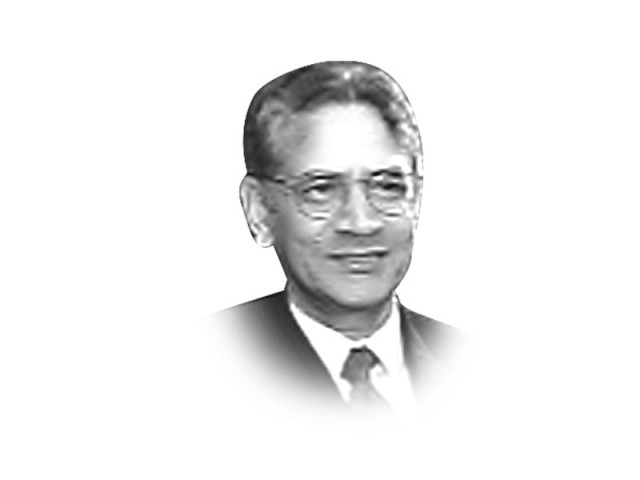‘Democracy’ vs democracy
The debate about democracy in Pakistan is stuck between the civilian vs army rule argument.

Yes, democracy does have form and substance, and it is important to understand the difference. The form manifests itself in electoral democracy, sustained by a process of free and fair elections and peaceful and orderly change of government. But the form must embody good governance to empower people, and it can do so only by resting on free and representative institutions, constitutional liberalism or any other value based system, strong rule of law, and a just and equitable social order. That is the substance.
Democracy is also a graded experience which nations acquire by hard work in schooling themselves in literacy and appropriate habits of thought, accommodation and tolerance, and by modernising social structures with openness to such concepts as rights of man, people’s sovereignty and humanistic values. In many ways, democratisation is a painstaking struggle indistinguishable from the state and nation building.
Finally, there are some preconditions that make democracy possible, especially reform of the social structure and education, combatting intolerance and extremism and finding a national purpose. Only in this favourable environment can one lay the foundation of democratic ideals and facilitate the emergence of a country at ease with its religion and at peace with itself.
Where does Pakistan stand? In my view, at the beginning of the beginning, where even the struggle to create preconditions has not begun in earnest. The debate about democracy is stuck in the civilian vs army rule argument and the completion of the civilian government’s term. Both, the civilian and military governments, have done enough damage to account for all the harm that has come to Pakistan. The fact is, it is not one stakeholder or institution that is responsible for Pakistan’s crisis. Seen from a historical perspective, both the army and feudal dominated civilians have been united in the common pursuit of strengthening themselves and their class and institutional interests. They were allies as well as rivals — allies in maintaining the status quo and rivals in the struggle for power.
So the debate should not be whether bad civilian government is better than no civilian government but how to have a good civilian government that is truly democratic.
The liberals clap when the media is free and a judge speaks up and lawyers march for democracy. But can we equate one individual judge’s activism with an independent judiciary? Yes the media is free but is it really debating the fundamental national issues or is it trapped in the emotion of the moment? Yes there is an active civil society but part of it is as much uncivil as civil. Lawyers march for democracy but some of them also shower rose petals on Mumtaz Qadri, an assassin. And the young are confused, making them vulnerable to radical thoughts and aspirations for progress and modernisation, making them prone to guilty feelings for being not Islamic enough. They cry out for leadership and moral clarity.
The only segment of population that has a clarity of purpose are the elite — civil, military, in the government and in the opposition — who have managed to defend the status quo by keeping the nation weak, insecure, divided and chained to illusions and emotions that provide a surrogate national purpose and shift attention away from the real issues. So when it is said let the ‘democratic process continue’, what democratic process we are talking about?
Published in The Express Tribune, June 25th, 2011.















COMMENTS
Comments are moderated and generally will be posted if they are on-topic and not abusive.
For more information, please see our Comments FAQ